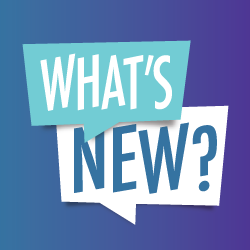What’s New in K-12 Competency-Based Education?
CompetencyWorks Blog
 Competency-Based Education
Competency-Based Education
- A Systematic Review of Competency-Based Education Implementation and Outcomes Research – Twenty years of research on competency-based education are synthesized in the Journal of Competency-Based Education by Carla Evans, Erika Landl, and Jeri Thompson of the Center for Assessment. The findings provide insights for policymakers, researchers, and practitioners about student outcomes, barriers and facilitators of K-12 implementation, and questions for future research. The authors also provided an overview of the article on the CompetencyWorks blog.
- Educator Competencies for Personalized, Learner-Centered Environments – Designed to guide professional learning, this 2nd edition of the competencies supports educators, schools, and districts in deepening their implementation of personalized, student-centered learning. Developed by KnowledgeWorks and the Council of Chief State School Officers, the competencies are grouped into instructional, interpersonal, intrapersonal, and cognitive domains. Each domain includes competencies and cross-cutting themes related to equity and inclusion, social emotional learning, and remote learning.
- Strengthening Local Assessment Systems for Personalized, Proficiency-Based Education: Strategies and Tools for Professional Learning – A series of professional convenings in Vermont to support schools and districts seeking to create high-quality local systems of assessments are described by Pat Fitzsimmons of the Vermont Agency of Education. The report can serve as a resource for schools, districts, and states to improve their own assessment systems, including formative, summative, and student-designed performance assessments. The Vermont team also led an Aurora Institute webinar on this work, available for viewing here.
- BEST Self-Direction Toolkit – This toolkit provides rubrics and tools designed to support teachers in instructing and assessing self-direction as a developmental progression. A groundbreaking resource for advancing students’ development of habits of success, the toolkit was developed by a research-practice partnership between teachers and researchers in New Hampshire, aligned with the state’s performance assessment for competency-based education (PACE) system.
Remote/Hybrid Learning and Competency-Based Education
- Mere Engagement: Reflections about the Connections Between Online Learning, Student Agency, and Student Engagement – This report offers educators and school leaders seven action steps to reimagine and strengthen student agency and engagement when students are learning virtually. With so many issues competing for attention during the pandemic, authors Laureen Avery, Marsha Jones, Sara Marr, and Derek Wenmoth note that “Without considering issues associated with student agency and student engagement, all our work to prepare may be in vain.”
- Determining Attendance and Alternatives to Seat-Time – Attendance looks dramatically different in the COVID-19 era, and districts are grappling with how to ensure that students can access learning and make progress. This report by Susan Patrick and Alexis Chambers of the Aurora Institute offers 10 strategies for creating attendance policies for learning remotely, as well as examples from four states using seat-time alternatives that support competency-based attainment.
- Designing Engaging, Purposeful, Rigorous Tasks for Remote and In-Person Learning – Recognizing that remote work needs to be more meaningful and purposeful to keep students engaged, this webinar explored the design of meaningful, interactive, and rigorous tasks that support students in guiding and taking ownership of the products they create. Presented by reDesign and Círculos High School, the session also included a workshop to practice outlining a high-quality learning experience.
Professional Learning
- Assessment for Learning Conference Winter Launch (February 3) – Focuses on making assessment for learning the norm, navigating current crises, and moving toward a more just and student-centered future. Leads to a 2-day conference in May, led by the Center for Innovation in Education, Next Generation Learning Challenges, and 2Revolutions.
- National Convening on Personalized Learning (February 8-9) – An opportunity for educators to learn from national experts and experienced practitioners to develop actionable steps and network with others to advance personalized learning in their schools. Offered by the Institute for Personalized Learning.
- Examining Privilege, Systemic Racism, and Becoming Social Justice Educators (February 17) – Participants will develop social justice and equity educational practices, move toward more just and inclusive classrooms and schools, and build strategies to support each other in making these changes. Offered by the New Hampshire Learning Initiative.
- Competency-Based Learning: From Time-Based to Performance-Based (February 22-26) – This course helps educators develop the mindsets and strategies to shift from time-based to performance-based learning, such as how to design opportunities for reassessment, differentiation, and student self-reflection. Offered by Global Online Academy.
- A New Way Forward Summit (February 25) – Learner-centered leaders will share successes and lessons from their learning communities during the pandemic and implications for this school year and beyond. Led by Altitude Learning, Big Picture Learning, Design39Campus, Education Reimagined, and Getting Smart.
- The Pedagogy of Personalized, Competency-Based Learning (February/March 2020) – reDesign Institute offers this deep dive into essential personalized, competency-based pedagogical practices, adapted for remote and hybrid learning environments. The Institute is also offering courses on anti-racism strategies for educators and designing competency-based curriculum.
Eliot Levine is the Aurora Institute’s Research Director and leads CompetencyWorks.